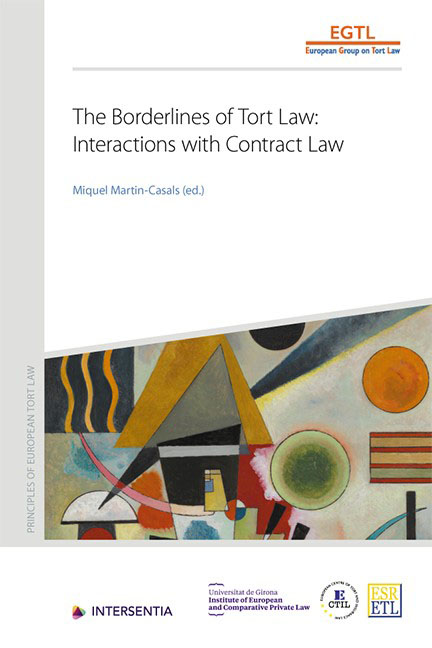Book contents
Poland
Published online by Cambridge University Press: 15 November 2019
Summary
QUESTIONS
TRACING THE BORDERLINES
A. DISTINCTION BETWEEN TORT AND CONTRACT
In Polish law, contractual and tortious liability are clearly separated, in written law, case law and scholarly writings. These two liability regimes are in many respects independent and distinct from one another, and yet they remain subject to some common rules and principles applicable to the law of obligations in general.
The separation of the two regimes has a long tradition in Polish civil law. The structure of the Polish law of obligations, and in particular the sources of obligations, have been shaped by the evolution of private law in Europe. The classification of sources of obligations made in the Institutes of Justinian into contracts, delicts, quasi-contract and quasi-delicts was commonly followed in Europe until the 19th century. Until 1795, Polish civil law was mainly based on case law and custom and under a very limited influence of Roman law. After three partitions of the Republic of Poland by the Russian, Prussian and Austrian Empires in the 18th century, the Polish State ceased to exist for 123 years. During the time of partition, the entire Polish territory was under the influence of five legal systems: the Prussian Civil Code (replaced later by the German BGB), the Collection of Laws of the Russian Empire (Volume X on private law) of 1835, the Austrian Civil Code (ABGB), the Napoleonic Code, and Hungarian law (in the southern parts of Poland). All of the above were all official sources of law on the territory of Poland.
In November 1918, when Poland regained its independence as a democratic state, substantial legal reforms were carried out. Instead of a synthesis of the systems already binding on the Polish territory, the Polish Codification Commission chose to follow modern legislative trends and experience of the Swiss legislator (the Swiss Code of Obligations) as well as the unification processes that were taking place at the supranational and international levels. In particular, when drafting a code of obligations, the Codification Commission abandoned the Justinian's classification of obligations and divided them into two categories: obligations resulting from acts of will (legal transactions, such as contracts and unilateral representations) and obligations arising from other conduct (lawful human acts, delicts, unjustified enrichment and other acts).
- Type
- Chapter
- Information
- The Borderlines of Tort LawInteractions with Contract Law, pp. 419 - 466Publisher: IntersentiaPrint publication year: 2019



